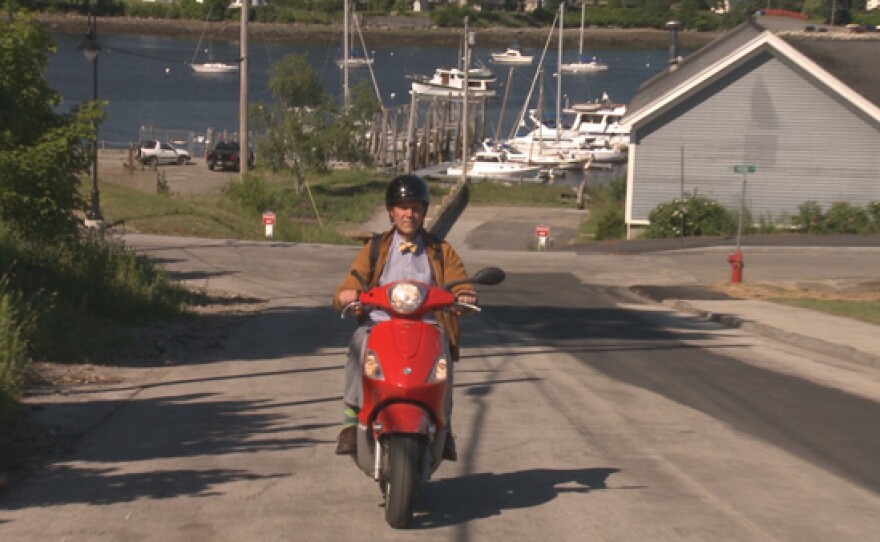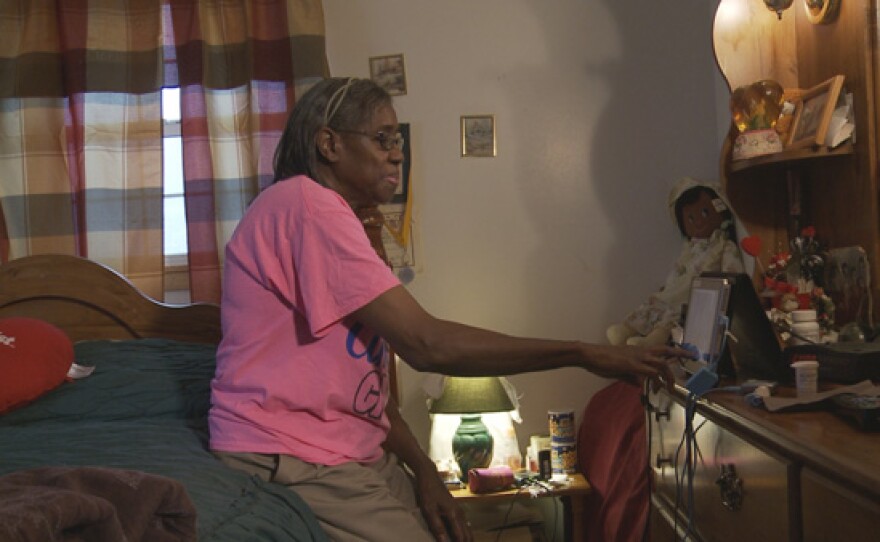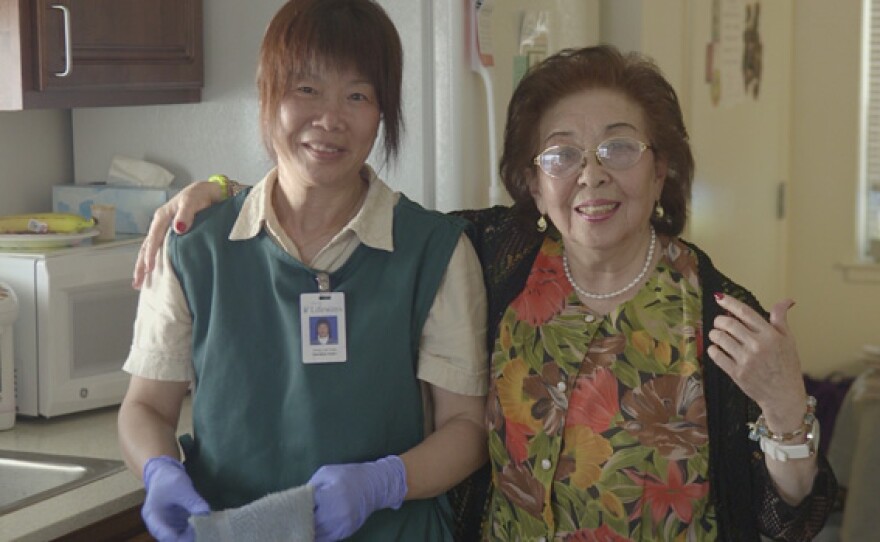Filmmaker David Grubin, the son of a general practitioner, takes his camera across the country to uncover a quiet revolution happening in medicine. From Maine to Mississippi, Alaska to California, he visits physicians, nurses and other healthcare professionals who are placing the patient at the center of their practice — transforming the way medical care is delivered while lowering costs. "Rx: The Quiet Revolution" shows how a patient-centered philosophy can improve health outcomes and enrich the lives of patients.
The Stories

A community practice in Belfast, Maine: Dr. David Loxterkamp is one of the new breed of primary care practitioners. His father was a small town country doctor and he followed in his father’s footsteps, setting up a private practice in Belfast, Maine, but after 20 years he set out in a new direction. He assembled a team of physicians, nurses, medical assistants, a psychologist, and others to create an innovative, team-based group practice. Today, Loxterkamp’s office is a hub of activity, but a patient never waits for an appointment.
Many of Dr. Loxterkamp’s patients suffer from chronic, debilitating diseases and can’t always make it to their appointments. Reviving an age-old practice, Dr. Loxterkamp makes house calls. Seeing a patient at home affords him a true look at a patient’s daily life and obstacles. When a sudden increase in the number of patients with addictions to painkillers took him by surprise, his team responded with a medically assisted recovery program that has helped many.
“We want our practice to revolve around the patient’s needs,” Loxterkamp says, “not our own.” This humanistic, patient-centered model has proven effective: a third of the patients in the practice’s smoking cessation program have quit, emergency room visits have dropped by 40 percent, and the average blood sugar levels of patients with uncontrolled diabetes has dropped by 100 points.

Diabetes in the Delta: The state of Mississippi ranks last in household income and first in diabetes; 40 percent of the children under 18 are considered obese. But in Ruleville, a small town in the Mississippi Delta, they’re trying to do something about it with help from the state capital in Jackson and the University of Mississippi Center for Telehealth. By providing diabetic patients with computer tablets that monitor blood sugar levels on a daily basis, Ruleville’s Sunflower Health Clinic is empowering patients to take care of themselves, combining technology with personal care at the clinic.
“The way to control this disease is with constant communication with our patients,” says Joanie Perkins, the clinic’s Chief Development Officer.
Since the program began, ER visits and glucose levels in Ruleville are falling and patients who once felt helpless about their diagnosis are now taking charge of their health. “A decision to take medicine, eat healthy and exercise is an individual choice,” said Dr. Kristi Henderson, Chief Telehealth and Innovation Officer. “And we want to make that easy and support that effort.”

Native Alaska: The Southcentral Foundation: In little more than two decades, native Alaskans have converted a failing healthcare system run by the U.S. Indian Health Service into a community-owned and operated organization delivering care that emphasizes cultural sensitivity and preventive medicine. As Katherine Gottlieb, a Sugpiak native Alaskan and CEO of the Anchorage-based Southcentral Foundation puts it, “Medicine is bigger than tests, diagnosis, pills and procedures. It’s about human beings and relationships.”
Southcentral calls their patients “customer-owners” and considers them active participants on the road to wellness. Responsible for the health of 65,000 Alaskans spread across 107,000 square miles, the organization has developed ingenious strategies for bringing quality team healthcare to remote locations that have no doctors. At the same time, they offer their patients both medical care based on the western, scientific model and traditional native Alaskan forms of healing. In addition, Southcentral is on the front lines in the battle against the community’s epidemic of child abuse and domestic violence.
“The most important determinant of anyone’s health statistically, across the whole population, is the amount of self-confidence they have,” said Dr. Doug Eby. “This is a customer-owned, customer-driven journey. This is built around what Alaskan native people know works for them to get to a healthier place.”

Defining Challenges
A disease-based, doctor-centered medicine served us well for the first half of the 20th century, but economic pressures and a changing population are revealing its shortcomings. Explore these topics:
How Disease-Based, Doctor-Centered Medicine is Failing Us
Obesity & The Rise of Chronic Illness (with interactive map)
A nursing home alternative in San Francisco’s Chinatown: The vast majority of elderly Americans do not want to end their lives in a nursing home. On Lok, in San Francisco’s Chinatown, makes it possible for aging seniors with chronic illnesses or disabilities to grow old in their own homes. On Lok provides medical care along with house cleaning, shopping, laundry, and other services in the home.
“We bring our elderly participants to a center during the day and bring them back home every evening,” said Dr. Jay Luxenberg, On Lok’s Chief Medical Officer. “They can see a social worker, eat healthy food, enjoy friends during the day, and sleep in their own beds at night. It’s a privilege to take care of people who have made it to their 90s and 100s and help them in their final years live with dignity and hopefully stay at home.” On Lok has grown from a small local service to a nationwide program called Pace Lifeways that serves a variety of ethnicities.
This film is made possible by lead national sponsor the American Medical Association, as well as UnitedHealthcare, the Susan and Leonard Feinstein Foundation, The William and Phyllis Mack Family Foundation, Roy J. Zuckerberg Family Foundation, Primary Care Progress, Sodexo, Harvard Medical School Center for Primary Care, and anonymous contributor.





